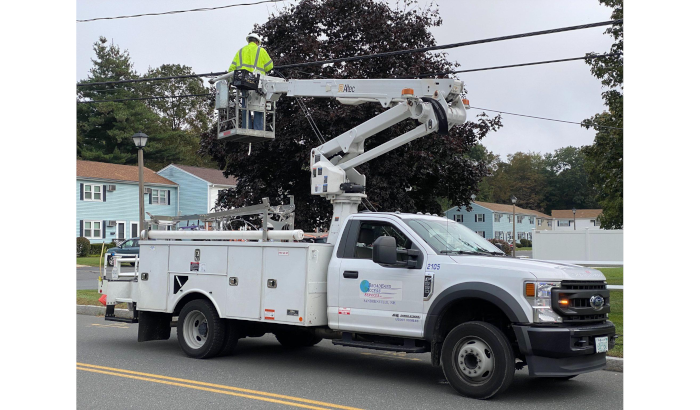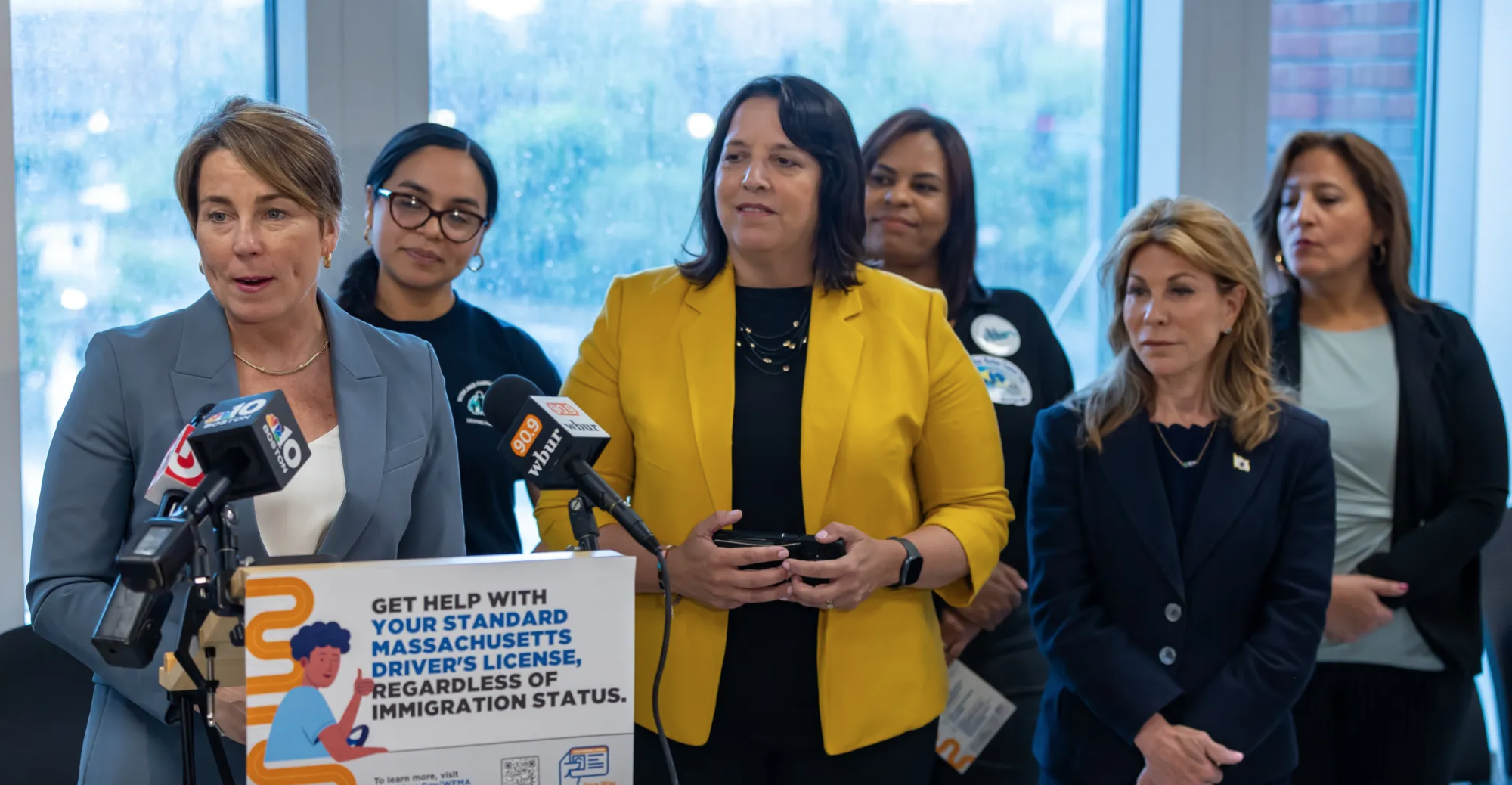Commonwealth seeks no-bid contract with David Ortiz-tied EV charger company
Boston Red Sox legend David Ortiz has reportedly earned nearly $160 million in his Hall of Fame career. Now a philanthropist, multi-product influencer, and entrepreneur, he’s still bolstering his riches, including with a new Florida-based company that is poised to receive north of $1 million in business over two years from the Massachusetts Department of Transportation through a no-bid contract for mobile electric vehicle (EV) chargers.
If approved, the procurement will circumvent standard procedures through what one watchdog called a “murky” process that doesn’t explain if Big Papi is offering taxpayers the best deal.
“There may be reasons in certain circumstances to do a no-bid or sole-source contract,” said Shahrzad Habibi, the research and policy director for the watchdog group In the Public Interest. “What’s unclear is why they are doing it in this case and what the rationale [is]. What are the criteria they are grading on?
“Those things are typically spelled out in a [Request for Proposals], and there’s no RFP.”

Cost of charging
Electric vehicles are an increasing presence on the roads, and federal and state governments are funneling money to develop both the autos and their charging infrastructure in order to reduce greenhouse emissions. The Biden administration recently allocated $1.7 billion to boost electric vehicle manufacturing, and in Mass, earlier this year the Healey administration dedicated $50 million in American Rescue Plan Act (ARPA) funds to increase EV charging access across the state. That includes $9.5 million for “mobile charging solutions” for medium and heavy duty vehicles, as well as $1.5 million specifically for charging state vehicles at 60 sites.
When the state funds projects that cost more than $10,000, it generally has to put those projects out to bid. Vendors respond to a description of the work, called a Request for Response or Request for Proposals, with how they plan to take on the project and their proposed price. While other factors can be involved, the state is generally supposed to choose the lowest bidder for the project—and it is supposed to advertise the project with the intent of drawing in any interested bidders.
For example, as part of the National Electric Vehicle Infrastructure program, MassDOT put out an RFR late last year looking for vendors to identify sites for charging stations across the state. Numerous vendors responded during the month-long period the RFR was open, and in May MassDOT announced it had selected three—Applegreen Electric, Global Partners, and Weston & Sampson—for the work.
And in a February press release announcing that $50 million ARPA grant, state officials said the Massachusetts Clean Energy Center, a quasi-governmental development group, will complete “a market characterization study” in determining how to spend the $9.5 million for mobile-charging solutions. MassCEC has since sent out several requests for information from interested parties, asking, among other things, how mobile charging sites should be prioritized, when fleets should participate in mobile charging programs, and the average mobile charging station project cost.
According to its website, MassCEC is accepting responses in July and plans to release an RFP for the work later in the summer. Procurement officers are “not accepting proposals at this time.”

Intent to purchase
Earlier this month, MasDOT released a Notice of Intent to Purchase a Proprietary Product or Service—in this case, mobile EV charging services—from a company called Charge Fast Power, LLC. A Notice of Intent (NOI) says a state agency plans to buy something without going through the normal bid process. The justification for this is usually that whatever the agency is buying is unique—only one company makes it, and only it can do the job—or that the vendor has experience that no one else has.
In either exceptional case, the agency “believes [the] opportunity represents [the] best value to the Commonwealth,” according to NOI language. That can be, at least in part, to avoid a lengthy competitive process. But the NOI still needs to be posted in order to make other companies aware that someone is getting this business and to give them an opportunity to make their own proposals. The agency can then determine which prospective contractor is “offering a comparable or better value,” or they can procure both products, or purchase nothing at all.
As far as the looming Charge Fast Power contract is concerned, Habibi of In the Public Interest said that by not using the RFP process, the state’s criteria are unclear. In short, Why are they choosing this particular company?
“When you issue an RFP and are getting bids from multiple vendors, you’re laying out that you’re getting these bids and this is what we’re grading you on,” Habibi said. “I think that’s one thing that’s missing here. Why this company? And, What is the criteria you graded the bid on? … Why these people?”
A MassDOT spokesperson said Charge Fast Power initiated the discussions with the state about the company’s chargers. Asked why the agency is looking to buy chargers now instead of waiting for the Clean Energy Center study to conclude, they said MassDOT views the Charge Fast Power price point as offering the best value, adding that the agency would pay for the equipment out of MassDOT operating funds.

The Big Papi connection
According to Florida state records, Charge Fast Power was incorporated in November 2023 by its CEO, who previously formed a company called Charge Fast LLC in March of that year.
Charge Fast Power lists two additional managers in its corporate filings—David Ortiz, and the beloved Sox slugger’s longtime agent, both under the same Florida address. Neither Charge Fast nor Charge Fast Power is incorporated in Massachusetts, according to the Secretary of the Commonwealth’s office.
On the public-facing side of the business, both Charge Fast US and Charge Fast Power have similar websites, which advertise numerous EV chargers, including a mobile 40 kilowatt charger. Neither chargefast.us nor chargefastpower.com lists any clients, nor do they feature or name Ortiz. However, images of two of the units Charge Fast Power offers show the slogan “THIS IS OUR POWER,” a rallying cry similar to Ortiz’s famous “This is our fucking city” after the 2013 Boston Marathon bombings.
And on LinkedIn, earlier this year a sales representative for Charge Fast Power in the Bay State posted a promotion of Ortiz standing beside an EV charger, with advertising copy reading: “Big Papi Backs the Fastest Charge.”
The explanation
According to the NOI, MassDOT intends to buy six 40kW chargers, which have two charging points each, at $21,420 a unit. That’s a little more than $100,000—but the contract has an option for MassDOT to buy 50 additional units at the same price over the subsequent two years, adding another $1 million in potential sales. It does not include any rates for charging via the units.

The NOI lists specs for Charge Fast Power’s mobile unit, including connection capability, wi-fi access, and “touch screen” that is a “customizable multi-media communication platform.” But the public announcement does not note why those specifications are unique or desirable, only stating: “The Department is posting this Notice rather than conducting a full procurement because the Department believes this opportunity represents best value to the Commonwealth.”
That puts other potential vendors at a disadvantage, Habibi said, explaining: “They’re saying, If you’re another vendor and you’re interested, let us know. But they’re not saying, These are the things we’re grading. … There’s no criteria like what is typically in an RFP, it’s just, Give us your offer and we’ll make a decision. What did you grade the offeror on? And what constitutes a better value? It feels a little murky.”
Habibi continued, remarking on the explanation that MassDOT “is posting what it believes to be best value.” “Again, what does that mean? Why isn’t there more information, especially if you’re allowing bids from other companies?”
The MassDOT spokesperson said Ortiz’s involvement with Charge Fast Power was not a factor in the state deciding to do business with the company. The spokesperson said the agency will make a final decision on purchasing the proposed EV chargers after a review of submissions from the due diligence process and any other additional information that may be provided.
Charge Fast Power did not return requests for comment.




